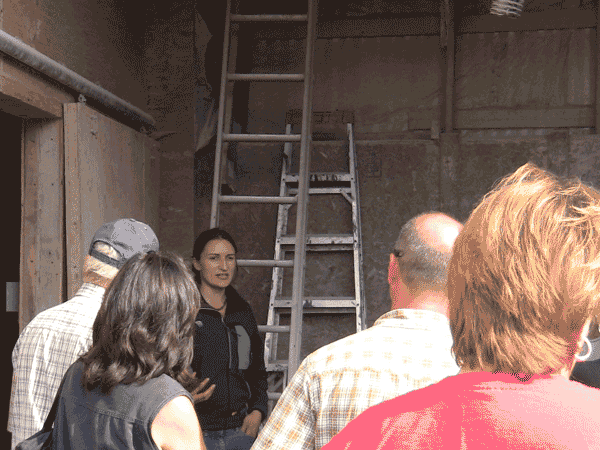Soy presses marry well with dairy
ON FARM PRESSES LET DAIRY OPERATIONS GET BETTER, NOT BIGGER
HIGH PRICES ARE a welcome change for grain farmers but a challenge for feed purchasers like dairy farmers. Although many choose to get bigger to increase profitability, some producers are focusing on feeding cows better.
With the quota cap limiting herd expansion since 2009, many Ontario dairy farmers that are looking to grow their operation have started re-investing in their cropping and feeding practices. One increasingly popular option to investigate is on-farm feed processing with the use of a soybean press. Jasmin Hofer of Energrow, a Newton based company that produces one type of oilseed press, says she has been extremely busy this fall attending shows and trying to keep up with information requests.
“Farmers are telling us that they have been thinking more and more about getting a press for their farms,” says Hofer. “Since dairy producers can’t buy quota right now, there is more cash available for other investments.”
PHOTO 1: JASMIN HOFER EXPLAINS THE BENEFITS OF A SOY PRESS TO INTERESTED DAIRY FARMERS

FARM PRESSED FEED FOR COWS
Familiar with the use of extruders to process feed on farms in Europe, George Heinzle has been looking to include a press in his operation for years. He operates Terryland Farms in St. Eugene with his wife Linda and son Terry. Together they milk 140 cows and crop 600 acres of beans, corn and barley. Heinzle says it took some trial and error to find a system that worked best with their operation.
“The first press we had made flakes that had to be shovelled by hand,” says Heinzle. “It’s much easier to auger pellets through the TMR mixer.”
The press that the Heinzles settled on in the end is a European styled, cold screw model that’s made in Ontario by Energrow. It can process one tonne of seed every day, which produces enough feed for over 300 cows and 80 litres of filtered oil. Heinzle says he prefers this press over the first model because it does a better job of separating the oil out from the protein meal. Even though dairy cattle are more forgiving when it comes to higher fat rations than other livestock, Heinzle takes care not to waste the oil through excesses in the feed.
“For us, the oil is just a by-product,” he says. “There is some market for it but we haven’t found one that pays as much as the fuel is worth so we prefer to blend it with fuel.”
Heinzle mixes the oil produced by the press directly with diesel fuel in five to 10 percent solutions. This helps to offset energy costs and enables the Heinzles to become increasingly more self-sufficient. With the help of a fully operational bio-digester and solar system, Terryland Farms has become a leader in on-farm energy efficiency.
HOMEGROWN FUEL FOR CROPS
Not far from Terryland Farms is Chesterville where Dave Chambers is using the same extruder with equal success. As a cash crop farmer, Chambers is much more interested in the oil being produced by the soybean press than the meal. But by processing neighbouring dairy farmers’ soybeans for feed, Chambers is able to market their unwanted oil with his own and attract companies requiring consistently large volumes. Chambers says his neighbours could decide to start running their own press but their current arrangement is mutually beneficial, even with the processing fee he charges.
“They tell me how much they feed and then I make the feed as fresh as I can for when they come,” says Chambers. “The press will do much more than they need [individually] and they can still save money by using their own beans.”
Chambers has been operating his press for two years and he sells the oil produced from his beans to a company in Montreal that turns it into biodiesel. But with the price of fuel, he says he’s toying with the idea of setting up his own bio-diesel unit and suspects he’s not alone. He has also started testing the press on canola, which produces more than three times the oil soybeans do, and says he would consider buying another press if it works out.
“I think if bio-diesel becomes more common, we’ll see more people doing it,” says Chambers. •

















